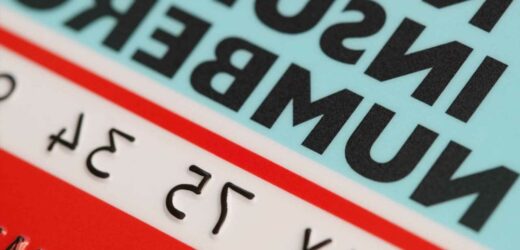MILLIONS of workers need to pay tax towards state benefits, known as National Insurance.
It goes into a pot that pays for benefits like sick pay and the state pension.
But how does it work, and when do you need to pay it? We explain all you need to know.
What is National Insurance?
National Insurance is a tax on your earnings, and goes towards state benefits including the state pension, statutory sick pay, maternity leave and unemployment benefits.
If you are a UK national, you should receive an NI number and card automatically before you turn 16.
This number allows the government to track your earnings and apply the right amount of tax.
Latest on Money
Gin and whisky drinkers to be hit by huge price hikes next year
Autumn Statement – what is happening to booze and cigarette prices?
Jeremy Hunt reveals huge council tax change – and it could send bills soaring
Full list of cost of living payments including up to £1,350 help – how to apply
Who currently pays it?
You pay National Insurance if you’re 16 or over and either:
- an employee earning above £242 a week
- self-employed and making a profit of £6,725 or more a year
It is deducted from your wages each month.
If you're employed, you can see your contributions by looking at your pay slip.
Once you reach state pension age, you don't need to pay it at all.
There are different types of National Insurance – known as "classes" -, and the type you pay depends on your employment status and how much you earn, and whether you have any gaps in your National Insurance record.
Why do I need to pay it?
Paying National Insurance entitles you to some state benefits, though these vary according to your employment status.
If you haven't met the minimum amount of contributions, you may not qualify for some benefits.
For instance, you need to pay National Insurance for a set number of years to be entitled to receive the state pension.
You need at least 10 years worth of contributions to get any state pension at all, and 35 years to get the full amount.
You can check how much National Insurance you've paid using the Government Gateway portal. You will need a login and password to do this.
If you do not have a login to the Government Gateway portal you can set one up, but will need your National Insurance number to do so.
If you are employed, your contributions will automatically be deducted from your take-home pay, so opting out is not possible anyway.
However, the self-employed have to manage these payments themselves.
You will then be required to complete a Self Assessment tax return every year – which will assess how much National Insurance you should pay.
What are the thresholds and how much do I pay?
A recent change in April this year that saw millions of workers paying 1.25% more NI.
But that was reversed again from November 6, 2023, saving workers an average of £135 a year in 2022, rising to £330 in 2023-24.
Rates fell from 13.25% to 12% and from 3.25% to 2% – the same as before April 2023.
The threshold for National Insurance payments is currently £12,570 a year for employed workers and £6,725 for self-employed people.
Now, following the u-turn on April's National Insurance hike, most people pay 12% NICs on anything they earn between £242 and £967 per week.
That's £1,048 and £4,189 a month.
You have to pay 2% on anything you earn over £967 a week – or £4,189 per month.
But, the exact amount that you will save depends on how much you earn.
Personal finance specialists at Hargreaves Lansdown have worked out how much people will save based off their earning.
The tax cut would see an individual on £15,000 save £24 a year.
Those on £20,000 will save £93 a year and those on £25,000, £124 a year.
Individuals earning £30,000 a year will save £218 a year and those on £40,000 will save £343 a year.
Lower earners, on less than £12,570 a year, won't benefit from the change.
That's because you don't pay any tax under this amount – which is your tax-free personal allowance.
The tax rise was due to be branded under a Health and Social Care Levy from April next year, but this was also scrapped.
Source: Read Full Article







